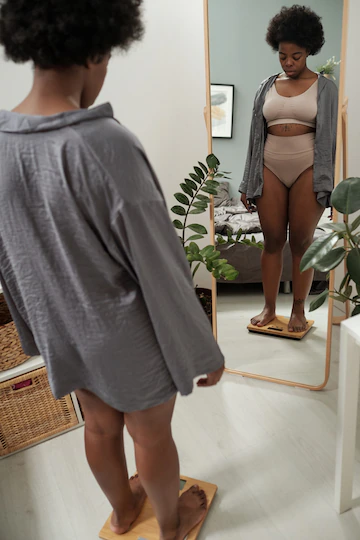Body Dysmorphic Disorder (BDD) is a mental health condition characterized by a preoccupation with perceived flaws in one’s appearance, often leading to significant distress and impairment in daily functioning. While BDD affects individuals worldwide, it is crucial to understand and address the specific challenges faced by those living in South Africa. The country’s unique cultural and societal factors can influence the manifestation, diagnosis, and treatment of BDD. By raising awareness, promoting early intervention, and improving access to mental health services, South Africa can make significant strides in addressing this disorder.
One of the primary challenges in addressing BDD in South Africa is the limited awareness and understanding of the condition. Due to the stigmatization of mental health issues, many individuals may suffer in silence, unaware that their distressing thoughts and behaviors are symptoms of a diagnosable disorder. Public awareness campaigns, both online and offline, can play a crucial role in educating the general population about BDD, its symptoms, and the available treatment options. By fostering a more supportive and empathetic society, individuals with BDD may feel more comfortable seeking help and support.
Another critical aspect to consider is the influence of cultural ideals of beauty on body image concerns in South Africa. The media and societal pressures often promote a narrow and unrealistic standard of beauty, which can contribute to the development of BDD. For instance, the emphasis on skin tone, body shape, and other physical attributes can perpetuate negative self-perception and heighten body image anxieties. Addressing these societal pressures requires collaboration between various stakeholders, including media organizations, fashion and beauty industries, and educational institutions. Promoting diversity, inclusivity, and positive body image messages can help challenge unrealistic beauty standards and foster a healthier perspective on self-image.
Furthermore, ensuring that mental health services are accessible and affordable is vital in addressing BDD in South Africa. Unfortunately, mental health resources remain scarce, particularly in underserved communities. The government, along with NGOs and private institutions, should invest in the expansion of mental health services, including specialized treatment for BDD. This includes training healthcare professionals to recognize and diagnose BDD accurately, as well as providing evidence-based therapies, such as cognitive-behavioral therapy (CBT) and medication management, where appropriate. Additionally, telemedicine and digital platforms can bridge the geographical gaps, allowing individuals from remote areas to access mental health support.
Support groups and community-based interventions can also be instrumental in addressing BDD in South Africa. Peer support can provide individuals with BDD a safe space to share experiences, learn coping strategies, and build a network of understanding individuals who can offer empathy and encouragement. Collaborations between mental health professionals and community organizations can establish support groups, workshops, and educational programs aimed at reducing stigma and promoting early intervention.
Lastly, fostering research and data collection on BDD in South Africa is crucial for developing targeted interventions and improving treatment outcomes. By conducting studies specific to the South African context, researchers can gain insights into the prevalence, risk factors, and cultural influences on BDD. This information can guide the development of evidence-based interventions and inform policies that address the unique challenges faced by individuals with BDD in South Africa.
Addressing Body Dysmorphic Disorder in South Africa requires a multi-faceted approach that involves raising awareness, challenging societal beauty standards, improving access to mental health services, and fostering research. By prioritizing the mental well-being of its citizens and promoting a culture of acceptance and support, South Africa can make significant progress in addressing BDD and improving the lives of those affected by this debilitating disorder.










